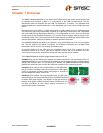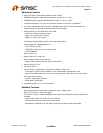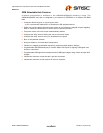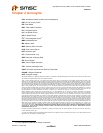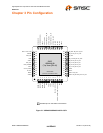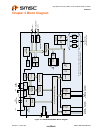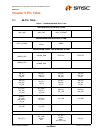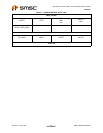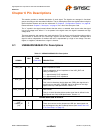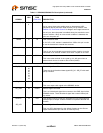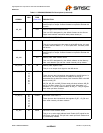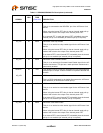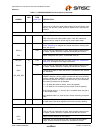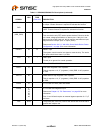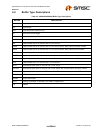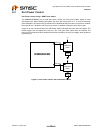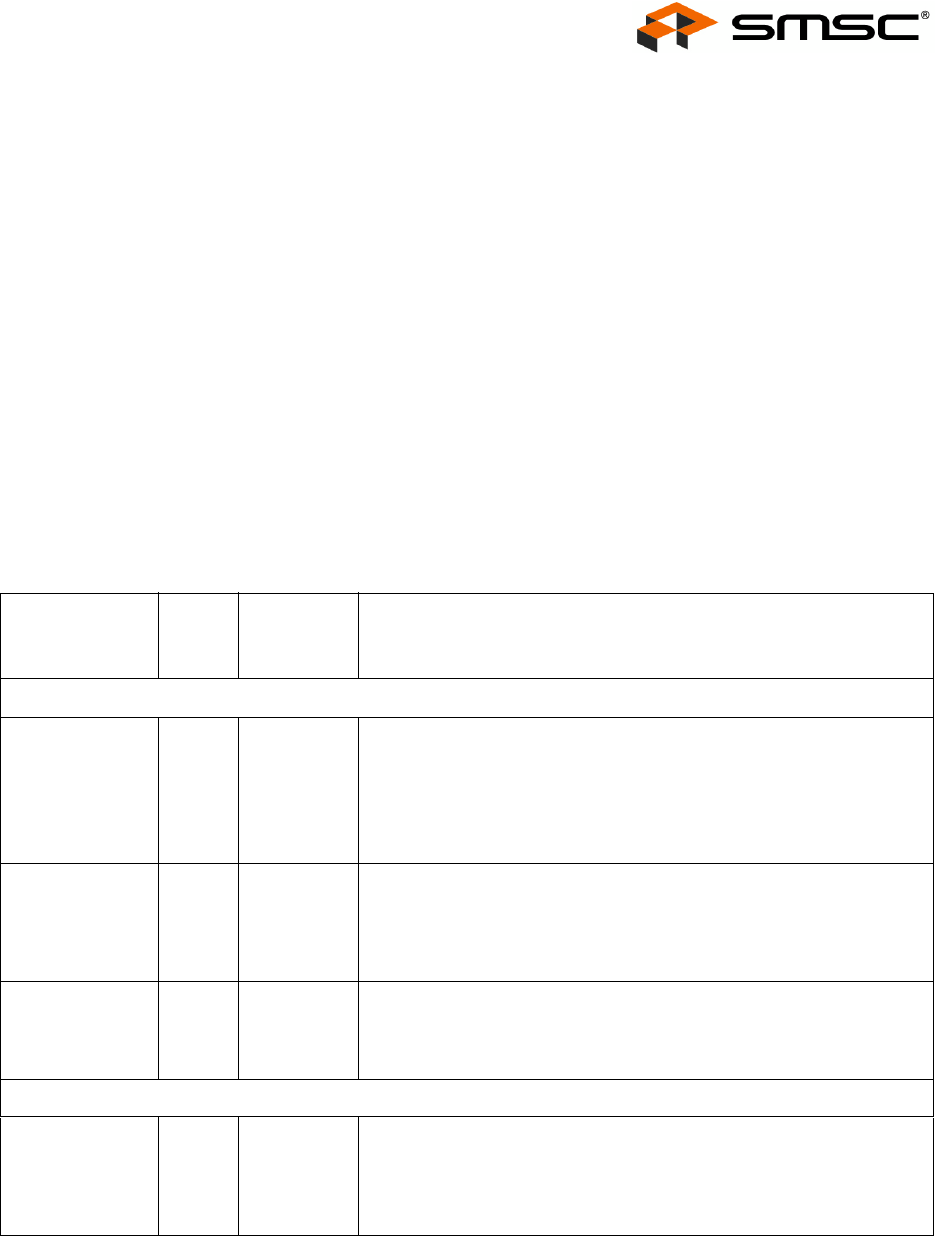
High Speed Inter-Chip USB 2.0 Hub and Flash Media Controller
Datasheet
SMSC USB4640/USB4640i 15 Revision 1.0 (06-01-09)
DATASHEET
Chapter 6 Pin Descriptions
This section provides a detailed description of each signal. The signals are arranged in functional
groups according to their associated interface. The pin descriptions below are applied when using the
internal default firmware and can be referenced in Chapter 8, "Configuration Options," on page 28.
Please reference Chapter 2, "Acronyms," on page 10 for a list of the acronyms used.
The “n” symbol in the signal name indicates that the active, or asserted, state occurs when the signal
is at a low voltage level. When “n” is not present in the signal name, the signal is asserted at a high
voltage level.
The terms assertion and negation are used exclusively. This is done to avoid confusion when working
with a mixture of “active low” and “active high” signals. The term assert, or assertion, indicates that a
signal is active, independent of whether that level is represented by a high or low voltage. The term
negate, or negation, indicates that a signal is inactive.
6.1 USB4640/USB4640i Pin Descriptions
Table 6.1 USB4640/USB4640i Pin Descriptions
SYMBOL
48-PIN
QFN
BUFFER
TYPE
(Table 6.2)DESCRIPTION
UPSTREAM HSIC INTERFACE
HSIC_IMP 39 I HSIC Impedance Control
This pin selects the driver impedance of the HSIC_DAT and
HSIC_STROBE pins.
‘1’ = approximately 50
Ω impedance
‘0’ = approximately 40 Ω impedance
HSIC_DAT 42 I/O HSIC Data
This is the bi-directional double data rate (DDR) data signal that is
synchronous to the HSIC_STROBE signal as defined in the High-
Speed Inter-Chip USB Specification, Version 1.0.
HSIC_STROBE 43 I/O HSIC Strobe
This pin is the bi-directional data strobe signal that is defined in the
High-Speed Inter-Chip USB Specification, Version 1.0.
DOWNSTREAM USB INTERFACE
USBDN_DM
[3:2]
USBDN_DP
[3:2]
3
1
4
2
I/O-U USB Bus Data
These pins connect to the downstream USB bus data signals and
can be swapped using the PortSwap feature (See Section 8.4.4.20,
"F1h: Port Swap," on page 47).



